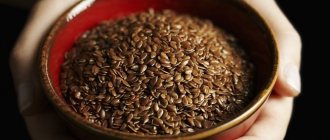The frequency of bowel movements can vary from three times a day to three times a week. This is an individual feature of the body. It is customary to talk about constipation in cases where defecation is difficult, the intestines are not completely emptied, a person feels discomfort in the abdomen and general weakness. In this case, stool can be daily. If visiting the toilet occurs less than once every three days, then there can be no doubt about the presence of constipation.
As you age, your risk of constipation increases. This problem cannot be ignored. Stagnation of feces leads to the reabsorption into the body of substances that should have been eliminated from it, since they are no longer useful. This affects the overall well-being of a person and ultimately leads to serious pathologies of the digestive system.
Causes of constipation
Before you understand how to improve your stool during constipation, you need to determine what caused it. The main reasons include:
- Poor nutrition – limited amount of fiber, monotonous junk food, reduced water consumption, lack of routine.
- Low physical activity. Weak abdominal and pelvic muscles affect the functioning of the digestive system.
- Stress.
- Some medications taken long-term are antidepressants, drugs containing iron, potassium or aluminum, oral contraceptives, antibiotics.
- Diseases of the digestive system - ulcers, hemorrhoids, cholecystitis, intestinal fissures and abnormalities of its development, tumor.
Depending on the cause of constipation, it is necessary to either treat the underlying condition or correct some aspects of your lifestyle.
General recommendations for combating constipation
It is very important to form the right lifestyle, daily routine and psychological attitude. To do this, you should follow several rules:
- You cannot tolerate the urge to go to the toilet and restrain this urge. With repeated delayed responses to body signals, they subsequently weaken and disappear completely.
- You cannot be distracted by reading or other activities when visiting the toilet.
- You should try to go to the toilet at the same time.
- If you need to push, it is better to do it while sitting up straight, with your feet on the floor.
- It is important to learn to relax in any life situations, avoid stressful moments, and look at everything with a smile.
Diet
A special place is occupied by compliance with the drinking regime. The daily water intake for an adult is 30 ml per 1 kg of body weight. It is useful to start the day with a glass of water, especially if you suffer from frequent constipation. This needs to be done before the usual morning procedures, so that by breakfast it has already been absorbed. Water expands the intestines, softens its contents and promotes bowel movements.
It is important that the diet is varied and includes all types of foods daily - vegetables, fruits, meat, fish, cereals, dairy products. You should try to eat at the same time every day to develop a habit in your body. Food will be better digested, and its remains will be eliminated regularly.
The diet of a person suffering from constipation should include foods rich in dietary fiber. Such products are very useful. Their components undergo long-term processing by intestinal microflora. This promotes its cleansing, the formation of feces, and also reduces cholesterol. Nutrients are better absorbed by the body. Fruits, vegetables, dried fruits, and wholemeal products are rich in dietary fiber. Bran has the maximum ability to absorb water. It is necessary that 30–40 g of dietary fiber be present in the diet daily. Foods that a person suffering from constipation should eat:
- vegetables and fruits that are not subject to heat treatment - cabbage, spinach, cucumbers, radishes, tomatoes, carrots, beets, zucchini, pumpkin, apples, grapes, melon, watermelon, bananas;
- dried fruits – dried apricots, figs, raisins, prunes;
- juices from plums, pumpkins, tomatoes, apricots, apples, cabbage, barberries;
- vegetable and butter;
- dairy products;
- greens - parsley, green onions, cilantro, dill, lettuce.
At the same time, you should limit the amount of coffee, tea, chocolate, rice, blueberries, and white bread in your diet. It is better to avoid pureed foods - they negatively affect intestinal motility.
Constipation as a disease of civilization
Consolidation or absence of daily bowel movements - who has not encountered this problem in the modern lifestyle? As statistics show, such people practically do not exist. Moreover, the topic is so intimate that it is not customary to talk about it openly, discuss it with family or friends, not to mention the thought of going to the doctor and telling everything. Another thing, for example, is peptic ulcer disease. There is a lot of talk, discussion and advice about it. Although few people know that constipation is a very serious symptom and a major risk factor for colon cancer. When stool is retained, toxins accumulate in the intestines, which damage the cells of the colon mucosa and trigger the mechanism of neoplasm, thereby increasing the risk of developing intestinal cancer. Conversely, daily bowel movement is the prevention of cancer of the gastrointestinal tract. It becomes clear how important this topic is during a period of serious growth in the number of cancer diseases.
What is chronic constipation?
Quite often, doctors and patients use the term “constipation” to mean different manifestations. For the patient, this most often means reducing the frequency of trips to the toilet. At the same time, for one person, stool every 5 days is habitual and does not cause concern, but for another, stool every other day will already be constipation.
In medicine, there is a clear definition of this concept. Constipation is a dysfunction of the colon with a decrease in the frequency of stool less than 3 times a week, with a change in its consistency to dense (in the form of “individual hard lumps of feces or nuts” or “feces of normal shape, but with hard lumps”), with forced straining , occupying more than 25% of the time spent in the toilet.
Is the lack of regular bowel movements a diagnosis or a symptom?
From the point of view of experts, chronic constipation is an independent disease, but it is often a harbinger of the development of other chronic diseases and not only of the gastrointestinal tract. It has now been established that the appearance of hard and irregular stools can precede the development of Parkinson's disease by more than 10 years. It follows that constipation is a factor reflecting the likelihood of developing age-related neurological (neurodegenerative) diseases, including Alzheimer's disease and age-related dementia, the identification of which at an early stage is especially difficult.
Now let's look at situations where constipation is a symptom of other diseases.
Constipation and colon polyps
As is known, polyps and other neoplasms occupy leading positions in oncopathology at present, especially in older age groups. In the presence of colon polyps and other neoplasms, a mechanical obstruction to the passage of intestinal contents occurs, causing stool retention and chronic constipation. A screening examination with a stool test for occult blood and inflammation, and, if necessary, video colonoscopy is an important diagnostic tool in clarifying the diagnosis of chronic constipation.
Constipation and thyroid
Constipation can be a symptom of a thyroid disease, namely hypothyroidism. With a deficiency of thyroid hormones, the intestines become “lazy”, which leads to the formation of fixed stools. Determining the level of thyroid hormones is recommended for everyone who experiences loose stools.
Constipation as a side effect of drug therapy
Chronic constipation is a common complaint among patients who, due to concomitant chronic diseases, are forced to take 5 or more medications simultaneously. It turns out that the very fact of taking a large number of medications at the same time causes a tendency to consolidate stool. In such situations, the validity and expediency of taking each “pill” is necessary.
Constipation and emotional state
There is a saying that there is only one step from stinginess to constipation. It has been noticed that if a person is excessively thrifty and tries in every possible way to avoid spending of any kind, then he is so afraid of parting with his “goods” that, in the end, he begins to suffer from problems with stool. According to experienced specialists, the inability to let go of anything is often projected onto the emotional state. A person prone to over-economy is often unable to “let go” of old grievances, hatred, disappointment and other negative feelings, as a result of which they experience stress. Meanwhile, the modern rhythm of life: hard work, violations of the work and rest schedule, the need for night work also leads to excessive production of stress hormones - adrenaline and cortisol, which reduce the motor activity of the colon. The ability to organize your work and rest schedule, find a way to escape from the everyday hustle and bustle and give vent to accumulated emotions is the key not only to the health of the gastrointestinal tract, but also to the entire body as a whole.
Nutrition is the basis for normal bowel function
By the 21st century, the development of the food industry has led to the fact that people eat refined, repeatedly processed, often artificial foods that are well “digested,” which leads to problems not only of obesity, but also of chronic constipation. A lack of dietary fiber negatively affects the tone of our intestines, which become “lazy”. The main task of the intestines is to “take” everything the body needs and “remove” everything harmful, toxic, and unused. And in order to “push through” those unnecessary intestinal contents, active motor work of the colon is necessary. Consumption of sufficient volumes of coarse dietary fiber (dietary fiber) triggers this motor mechanism, and due to the ability of fiber to retain water, it additionally leads to an increase in the volume of intestinal contents, thereby normalizing the motility of the “lazy” intestine.
Products rich in dietary fiber include baked goods made from whole grains or containing a significant amount of bran, buckwheat, barley, oatmeal, nuts (almonds, peanuts, pistachios), fresh vegetables and fruits. According to the recommendations of the World Health Organization, the generally accepted norm is to consume 25–35 g of fiber per day with food eaten. An interesting fact is that the inhabitants of some African tribes, who eat mainly vegetables, fruits and milk and almost no meat, do not experience constipation at all, while they naturally experienced a decrease in the level of colon cancer.
How many times a day should you eat?
It turns out that regular food intake affects intestinal motility. And all because after eating, the active work of the entire gastrointestinal tract begins: the release of enzymes and substances necessary for the digestion process, among which there is bile. And bile (a product of the activity of liver cells) is a natural stimulator of intestinal motility. Bile formation occurs continuously, but entry into the small intestine occurs periodically and is directly related to food intake. It is optimal to eat 4-5 times a day for the full functioning of the biliary system of our body and regular bowel movements.
Why is it so important to drink water?
One of the main functions of the colon is the reabsorption of water. In a “lazy” intestine, the contents spend more time, the time for reabsorption of water increases, as a result of which the contents “dry out,” become denser, and decrease in volume. And the volume of feces is a necessary factor in the motor functioning of the intestines. Sufficient drinking regime is one of the most important conditions for the normal functioning of the intestines. It is recommended to consume at least 1.5-2.0 liters of drinking water during the day, especially in the morning from 6 to 9 am. Drinking a glass of water on an empty stomach in the morning is a habit that can save your life in the future and will certainly improve its quality.
Constipation and physical activity
Currently, everyday life is arranged in such a way that a person lacks movement. Physical inactivity is the result of a modern urban lifestyle: traveling by transport to and from work, office work, in turn, leads to the formation of a “lazy bowel”. It has been established that there are receptors on human heels that are responsible for the functioning of the intestines, therefore, for example, walking for about 30 minutes a day improves blood supply to the intestines, and thereby normalizes its functioning. Doing yoga, swimming or morning exercises at home on a regular basis, which will bring you pleasure and inner satisfaction, will create tone not only for the gastrointestinal tract, but also for the entire body as a whole.
Constipation that we create ourselves
Particular attention should be paid to the feeling of urge and the need to go to the toilet. The urge itself occurs reflexively as the contents enter the lower parts of the colon, but we can directly control the process of bowel movement thanks to the human central nervous system. However, the moment of urge and the opportunity to visit the toilet do not always coincide. What happens as a result? Frequent conscious suppression of natural urge due to an unfavorable or unusual environment, lack of time or disgust in using a public toilet leads to the loss of reflex mechanisms for the occurrence of urge and the occurrence of chronic constipation.
Therefore, it is important, starting from childhood, to form the habit of visiting the toilet. Learn to take time for yourself, organize a work and rest schedule, watch what we eat, and then the work of the gastrointestinal tract will not create inconvenience.
You can get advice on the diagnosis and treatment of constipation from gastroenterologists at GC Expert. To diagnose intestinal diseases, we suggest using the comprehensive Check-up Intestinal Examination program.
Physical activity
Physical activity is a prerequisite for the prevention and treatment of constipation. Regular morning exercises, gymnastics and movement during the day improve intestinal motility. You can start the exercises without even getting out of bed:
- Lying on your back, forcefully pull in and push out your stomach.
- Pull your stomach in and out, lying on your side, pulling your knees to your chest. Do the exercise on the right and left sides.
- “Bicycle” – lying on your back, make rotational movements with your legs.
- Apply a few pressures on the abdominal area below the navel.
These exercises can be supplemented with massage. It can also be performed lying down:
- Circular massage of the abdomen in a clockwise direction.
- Spiral abdominal massage clockwise. You need to start from the navel and finish by reaching the pubis from below and the solar plexus from above.
- Stretch the left side of the abdomen, moving from top to bottom.
- Massage the little fingers alternately on both hands for a few minutes.
You can complete your morning warm-up with more active exercises: squats, walking with squats, moving on your buttocks.
Drug treatment
Treatment with special medications should be used as a last resort. Frequent use of constipation medications may have the opposite effect. Medicines are addictive and require increased dosage. Therefore, over time, dysbiosis develops in the intestines, and the body loses important vitamins and microelements, as absorption function is impaired. The same is true for the frequent use of cleansing enemas.
Among existing medications, it is better to give preference to drugs based on lactulose. These include Duphalac, Exportal, Normaze, Forlax. They are characterized by a mild effect on the intestines, retain water in it and soften stool. And although the effect does not appear immediately, it is quite long-lasting. These drugs are safe for children and pregnant women, they do not cause side effects from the intestines.
There are also faster-acting remedies for constipation. These are preparations based on senna, bisacodyl, as well as drops of guttalax, slasilene and the like. Most of them cannot be used for spastic constipation, which should be taken into account. They are not suitable for frequent use as they are addictive.
For acute conditions, glycerin suppositories are used. They are gentle on the intestines and are safe. In extreme cases, you can use enemas, but do not abuse this procedure. It is best to make them with Vaseline, sunflower or olive oil. For spastic constipation, warming the abdomen with a heating pad or bath helps a lot.
Folk remedies for constipation
All of the above methods are effective against constipation, but a positive result does not occur immediately. Folk remedies will help you quickly and safely cleanse your intestines:
- Senna decoction is very effective against constipation. The leaves of the herb contain a substance that causes a laxative effect, suitable for adults and children. Senna collection is sold in pharmacies. It is better to take it before bed, the effect occurs 8 hours after taking it.
- Vegetable oil helps soften stool in the intestines. It is necessary to take one tablespoon of olive, flaxseed or sunflower oil orally on an empty stomach.
- Drinking castor oil before bed will help empty your bowels. After two tablespoons the next morning the urge to defecate appears. The drug is contraindicated in case of cholelithiasis.
- An enema will help you empty your bowels quickly. You can use various decoctions or simple boiled water. It is important to remember that frequent enemas lead to habituation of the intestines.
If the use of folk remedies does not solve the main problem, contact a specialist to conduct tests and prescribe a stronger medicine.
Traditional recipes for constipation
The transition to a proper diet and physical activity will take some time before bowel function returns to normal. At the same time, recipes based on products that maximally stimulate the excretory section of the digestive system can help with constipation:
- Tea based on carrot tops. The carrot greens are dried, ground and sifted. Brew 1 teaspoon of tops per glass of water, you can add sugar. You need to drink tea along with tea leaves on an empty stomach half an hour before breakfast. This herb can be used to season first courses. Use it for 1 month.
- Make a mixture of 250 g of dried apricots and prunes, 1 tablespoon of senna and vegetable oil, 1 teaspoon of honey. Eat 1-6 tablespoons at night. You can store the finished mixture in the refrigerator for a week, and treat with it for up to 2 months.
- 3 teaspoons of wheat bran in water or milk at night. For a child, the dose is 1 teaspoon.
- Dried fruit mixture. Grind and mix 500 g of figs, prunes, dried apricots, dates, raisins with 5 tablespoons of honey. Take 3 teaspoons per day.
- 1 glass of kefir an hour before bedtime. The fermented milk product must be fresh, maximum from yesterday. You can add 1 tablespoon of vegetable oil to it.
- Coriander, as a constant seasoning in first courses and porridges - half a teaspoon per pan.
When constipation is the result of a disrupted lifestyle, it can be successfully treated by adjusting your diet and physical activity. But it is always necessary to consult a doctor, since this digestive disorder can also be a serious symptom of another disease.
Prevention
To achieve an ideal stool and never face the problem of constipation, you need an active lifestyle, normalization of nutrition, drinking and sleep. Also, after constipation, a few simple recommendations help improve the condition.
- Eat foods high in fiber. Cabbage, corn, soybeans, lentils, wheat bran, beans, flax seeds will help your intestines work properly.
- Don't prepare ahead of time. The longer the food has been stored, the worse the stool.
- Drink fresh ginger tea. Ginger contains many useful vitamins and microelements that have a positive effect on the functioning of the body. It stimulates peristalsis, has an anti-inflammatory effect, and normalizes intestinal motility.
- Include vegetable oils in your food. It has a beneficial effect on the body and is good for digestion.
- Be attentive to your body's reactions to the food you eat. Eliminate foods that cause congestion.
- Season your dishes with spices. Many seasonings contain a storehouse of beneficial properties necessary for the functioning of the gastrointestinal tract.
- Don't overload yourself with food. Before you eat, wait until everything you ate earlier has been digested. Wait at least 2-4 hours between meals. The more you eat, the longer the break should be.
- Protect yourself from stress and empty worries. Be positive and the body’s recovery will not take long!









